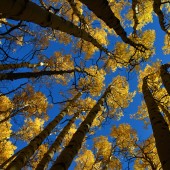

Paintings from Ellen Greenblum
Continue Reading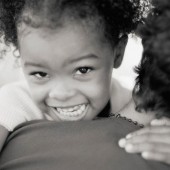
Too much of education, especially following the Western Enlightenment model and its increased use of scientific, quantifiable metrics, has seemed to completely forget that love and emotional intelligence have everything to do with what and how well the human child learns. In a globalizing society facing shared environmental and social crises of existential proportions, this forgotten understanding is fatal to real hopes of education for sustainability and healthy human and planetary life. Love is simply too critical an emotion to understand and incorporate into education, and it has been too long left out in the cold. But cold it has been for the human mind focusing on only rational/objective and emotion-denying forms of learning and intelligence, creating minds unmoved by the thus un-felt facts of an increasingly globally warming and more confused world.
Continue Reading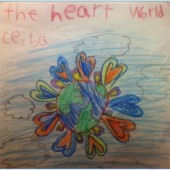
Table of Contents: JSE March 2015 — Sustainability: What’s Love Got to Do with It? PDF:Editors Welcome JSE March 2015 Love Issue Bringing this issue on the connection between love and sustainability to fruition has been tremendously enriching. It has allowed each of us to more deeply explore our own understandings of two concepts that […]
Continue Reading
The theme of stewardship, or caring for God’s creation, features prominently throughout Catholic social teaching. This Care for Creation project was designed to make students become engaged science learners who want to dig deeper into solutions when they learn about the environmental impacts caused by human choices through a lens of Catholic faith. By employing a Project-Based Science strategy and incorporating many of the themes of Catholic social teaching, students learned about climate change in a year-long sustainability education experience, shared their knowledge with their school and parish, and sponsored projects to help the poor and vulnerable of their city and abroad. This project can be used as a model for incorporating sustainability content and Project-Based Science learning into a Catholic science curriculum.
Continue Reading
Drawing from a theoretical framework of Ecopsychology and Biophilia this phenomenological study explored the following research question; What is the meaning of the human-environment relationship for children? This qualitative investigation utilizes data from writing samples and follow up focus group interviews with 68 children providing a robust sample of 6-12 year olds perspectives. Qualitative data analysis software using QSR Nvivo ® 7 & 8 was used to systematically provide topic, analytic, matrix and categorical coding for the 265 pages of textual data. Results indicate that children have a love of nature; a positive deep-seated intellectual and emotional appreciation for nature based on “experiences through” and “affection for” nature. When children expressed their relationship with nature they often did so from a place of positive emotional friendship or unconditional love. This study provides a visual representative diagram based on quantifiable qualitative data illustrating the bonds between children and nature. The biophilic results show that children are “falling in love” with nature and this representation can provide a glimpse into the possibility of “standing in love” with nature as people grow into adulthood.
Continue Reading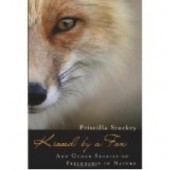
Abstract: In Kissed by a Fox: And Other Stories of Friendship in Nature, Priscilla Stuckey, Ph.D. presents a collection of stories as an integrated whole. The purpose of this book review is to offer this work of creative non-fiction as an illuminating example of how love and relationships are essential ingredients for sustainability. Kissed by a Fox is fundamentally about relationships between humans and other-than-human beings. Love for the natural world and one’s self are consistently described throughout the book as necessary for taking in and giving out what will sustain us and the earth. Stuckey delivers this message through narrating her experiences with “friendships in nature” and how these relationships transformed her life.
Continue Reading
This opinion/editorial presents the belief that love is present in all human lives as an emotional experience and may be present in all human lives as an intellectual idea as well. It considers possible actualities that lie behind some common thoughts (clichés) about love. The author presents the idea that even though love is central to our lives, the word love, if not the concept of love, is avoided in academic discourse. The author explores some of the scholarly, theoretical, and philosophical writing about love, noting that it is often named something other than love (compassion, well-being, altruism, etc.). The question and invitation are presented to consider what might be possible if love were intentionally and specifically identified as a methodology, pedagogical practice, and value in leadership, activism, and education.
Continue Reading
Abstract: This article describes the connection between love and one’s “home”. It is this love and a strong sense of place or connection to one’s home that ushers in the need for sustainability
Continue Reading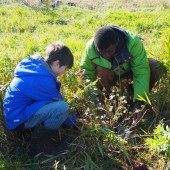
Table of Contents: JSE March 2015 — Sustainability: What’s Love Got to Do with It? PDF: Charles JSE March 2015 Love Issue There is a terrible challenge facing all of us who worry about the future of the Earth, and its inhabitants—human, domesticated and wild. That includes all of its living ecological inhabitants, and the […]
Continue ReadingAbstract: This essay offers reflection on the question of what love has to do with sustainability and environmental awareness. Examining Terry Tempest Williams’ Desert Quartet, Aldo Leopold’s A Sand County Almanac and Pattiann Rogers’ Firekeeper: New and Selected Poems, the article explores how and when environmental consciousness arises. The three selected authors offer insight on the roles played by environmental trauma, close and empathetic identification with animals and place, the power of close observation, and the constitutive power of praise. Finally, an etymological reading of the word, “sustain,” suggests new definitions of what it means to have and to hold, to make a pledge to environmental awareness. The essay concludes that the vocabulary and emotional commitment prompted in acts of sustainability partakes in the language of love.
Continue Reading
The stories we tell shape our view of ourselves and the path we take through this time of collective awakening and global turning. We have the ability to consciously choose narratives that offer realistic beacons of hope to guide our way through the Great Transition. To achieve authentic and lasting reconciliation as the foundation for our future, we require the power of love and compassion as a practical basis for organizing human affairs.
Continue Reading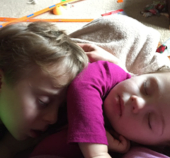
This is a gratitude song created with children’s bedtimes in mind.
Continue Reading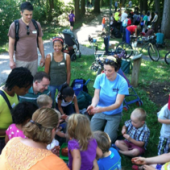
This article briefly summarizes a body of research in which love is understood to be at the core of three primary life experiences that foster life-long care for the environment: time in nature, especially during childhood; close role models for care of nature; and participation in an organization that fosters direct learning about nature. From this foundation, family nature clubs are presented as having a fairly unique capacity to offer all of these experiences. The family nature club founded by the author, Columbia Families in Nature, is described in some detail, including photos and quotes from the participants and summary results from research on the broad effects of family nature clubs is presented. All together, the case is made that family nature clubs are a ripe opportunity for communities to cultivate connection, care, and love between people and the natural world.
Continue Reading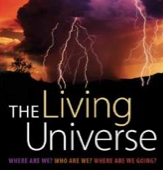
In The Living Universe: Where are We, Who are We, and Where are We Going, Duane Elgin presents a powerfully compelling argument that the most fundamental challenge facing humanity during this time of crisis is to visualize a future of great opportunity and that the foundational story guiding the reality people create on Earth is whether the universe is alive and to be loved and nurtured or dead and to be feared and consumed. This article provides a review of this powerful book with an eye to the connection between love and sustainability.
Continue Reading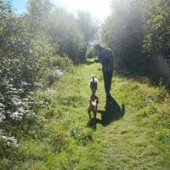
This article is an introduction and exploration of the potential for a new approach to mental healthcare. This approach blends mental health treatment with nature and service for a therapy that is systemically beneficial for the individual, the community, and nature together. Called nature-based therapeutic service (NBTS), it is a method within the construct of ecotherapy that is both nature-based and service oriented. It involves empowering clients to serve nature, to develop relationship, build skills, connect to the community, and gain a sense of purpose and fulfillment. Foundational fields related to NBTS include ecopsychology, sustainability education, biophilia, service learning, the study of altruism, trans-species psychology, and other psychological theories. Based on research from these contributing fields, the assumption is that a mutually beneficial therapeutic approach can reconnect humans with nature for individual and community sustainability, through the power of relationship, compassion, empowerment, and love.
Continue Reading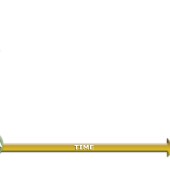
This article looks at the Wisdom Development Process and the importance of the heart in ensuring sustainability. This will be a key process for developing leaders in the emerging Wisdom Economy.
Continue Reading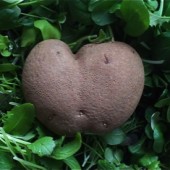
Women farmers in the U.S. are more likely than men to adopt more ecologically-based practices on their farms. In order for such practices to increase, it is relevant to understand how these women farmers learn the values and skills that shape their work. Place attachment (including the emotional connection to a locale and the intangible, felt meanings, values, and symbols) and place meaning (including personal values, socially and iteratively constructed values) seem to be important drivers of active care for place. These are mediated by ecological and social knowledge, experience, social relationships, and identity. If these factors are supportive rather than in tension with place attachment and place meaning, an active care for place can further develop the context for emotional bonds and the story of the locale. Regenerative farmers as well as others who work directly with the land are perhaps uniquely positioned to be leaders in the process of becoming part of a place. In this paper I summarize the literature about farmers’ relationship to place using a framework developed from the general sense of place literature. Finally, I discuss two aspects of this framework that emerged from research with 14 women farmers in Wisconsin and Minnesota: a georgic ethic and an ecocentric perspective: functional components of an ecology of love.
Continue Reading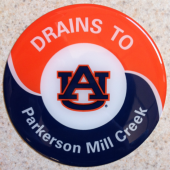
This article utilizes theoretical inquiry to explicate the value of cultivating biophilia within higher education settings. The author provides several suggestions to promote participation in the sustainability movement while also cultivating biophilia. The definition of biophilia is explored within the context of sustainability education and a link is made to the theme of this JSE issue. Thus, this article provides both theoretical exploration of utilizing biophilia in an educational context and it offers suggestions for implementation of a form of curriculum and pedagogy that promotes the understanding and practice of sustainability that is applicable in many settings.
Continue ReadingThis conceptual article presents the Head, Heart and Hands Model for Transformational Learning. The model was conceptualized from a synthesis of diverse literature, such as sustainable education, transformative learning theories, placed-based learning, indigenous learning approaches, experiential learning, eco-literacy, curriculum theory and conceptual change in science classes. Transformative processes are necessary to change the prevalent anthropocentric eco-paradigm of western culture toward more sustainable values and behaviors. Head, hand and heart is a holistic approach to developing ecoliteracy introduced by Orr (1992) and expanded by Sipos, Battisti and Grimm (2008). The model shows the holistic nature of transformative experience and relates the cognitive domain (head) to critical reflection, the affective domain (heart) to relational knowing and the psychomotor domain (hands) to engagement. Pugh’s (2002) pragmatic construct of transformational learning experience offers an analytic tool for measuring transformational experiences through expanded perception (cognitive), expanded value (affective) and active use of learned concepts (psycho-motor). This model not only represents the multi-dimensional nature of transformative processes, it also includes the importance of learning context. The context of place provides a framework of authentic experience for deeper reflection, sense of belonging and body/sensory stimulation that acts as a catalyst for deep engagement required for transformation. Literature in the domain areas are discussed as well as the importance of nature connection and love of place to sustainability values and pro-environmental behaviors.
Continue Reading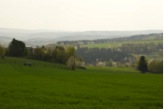
Sustainable being is the concept of living a lifestyle that is grounded in physical, mental, emotional and spiritual wellbeing. In this article the author shares how her experiences and learning during a sabbatical in India and Germany helped her make the connection between sustainability education, change initiatives, whole health and heartful living. An overview of sustainable being is provided in the context of five principles of living shared by a vedic-eco community in India who is involved in global sustainability efforts. These principles are related to those living in western society with an emphasis placed on the role of sustainable being for educators involved with change initiatives.
Continue Reading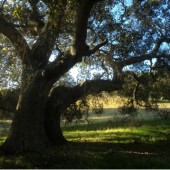
The ecological crisis is a crisis of relationship, and the way forward lies in building more reciprocity, respect, and love into human relationships with each other and with the rest of nature. What is needed is a great economy of give-and-take in which what each takes in is balanced by what each gives out. Nature provides the model for this reciprocity in the biological process of breathing in and breathing out. The rhythm of the breath, found in every life form as well as in every larger community in which living beings participate, provides a powerful model for human decisions and actions in every arena of life. By copying the rhythm of the breath, humans can learn from the wisdom of nature’s economy to revolutionize our relationships with one another and with the larger-than-human world. I discuss the economic model of the modern world and its devotion to linear increase and accumulation, or breathing in without limit, and how profoundly this pattern contradicts the reciprocal model of biological life. I offer historical examples of reciprocal economies among the Northwest Coast Indians in the potlatch ceremony and among ancient Israelites in the Year of Jubilee. I then offer examples of reciprocal practices that emphasize the breathing-out or giving-back half of the breath cycle and that can be practiced in daily life. I suggest that activities of any kind that engage people in giving back, such as showing appreciation, extending care, or pausing for meditation, contribute directly to sustainability because they address the giving-back half of the breath cycle, which is missing or underexplored in modern life.
Continue Reading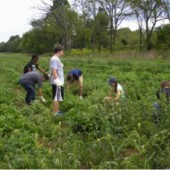
To address solutions to environmental degradation in an authentic context, this qualitative research study examines college students’ responses to outdoor fieldwork in an agriculture-focused humanities course. Students’ responses to fieldwork on organic farms generated three integrated themes. Active care encompasses students’ actions of care for plants, people, and animals; intimate connection includes feelings of kinship with people, plants, land, farmer networks, and love of farming. Of particular interest is the third theme of regeneration, related to actions ensuring flourishing of future generations of humans and the natural world. The study raises questions about the need for significant curricular change in higher education to prepare students to respond effectively to climate unpredictabilities and environmental degradation.
Continue Reading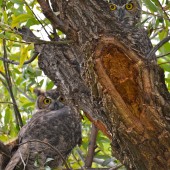
Camping in the national forest is recounted via a poem, replete with rhyme, relation, and rapture.
Continue Reading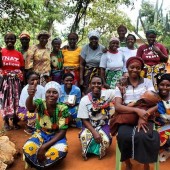
Table of Contents: JSE March 2015 — Sustainability: What’s Love Got to Do with It? PDF: Gurecki JSE March 2014 Love Issue Abstract: The impacts associated with products such as solar lamps and rain water harvesting tanks often tend to focus on economic, environmental, and health indicators. Authors Gurecki and Makori make the case for […]
Continue Reading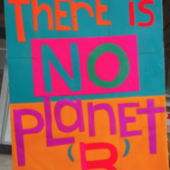
This article attempts to fill a gap in the sociological literature by detailing how I taught a sociology course ‘Society and Climate Change’. I discuss the theories I used to frame my course – Barry Commoner’s laws of nature (1976) and Patricia Hill Collin’s intersectionality (2009) – and then I present and analyze the pedagogical practices I used that attempted to put these two theories into practice by embodying connectedness through love, in order to create what David Korton refers to as an ‘earth community’ (2010).
Continue Reading
This article is an exploration of vulnerability and the experience I had as an artist inhabiting the art of writing poetry; a creative medium that is new to me. I begin with a brief examination of vulnerability as it is defined today culturally and move towards a personal exploration of what vulnerability feels like within an intentional and unfamiliar creative process. Through this process I learned from vulnerability– things like like navigating open space, respecting how growth unfolds, that vulnerability is an integral part of loving an living life fully, the relationship between vulnerability and love, and the magic that happens when bodily experience aligns with word. This article is an exploration, and affirmation, of vulnerability as a deep site for learning and growth and a requirement, if we are to love deeply.
Continue Reading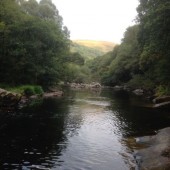
‘Sustaining Love’ explores education for sustainability as a psycho-cultural transformation rooted in moments of personal emotional enmeshment in Nature. It is argued that while technical and economic development provides some of the necessary conditions for meeting our collective sustainability challenge, our choices along the way must be informed by a sense of identity and shared fate with infra-human species and the natural world.
Continue Reading